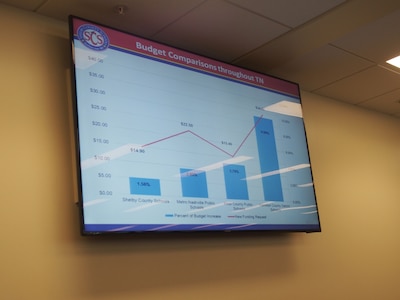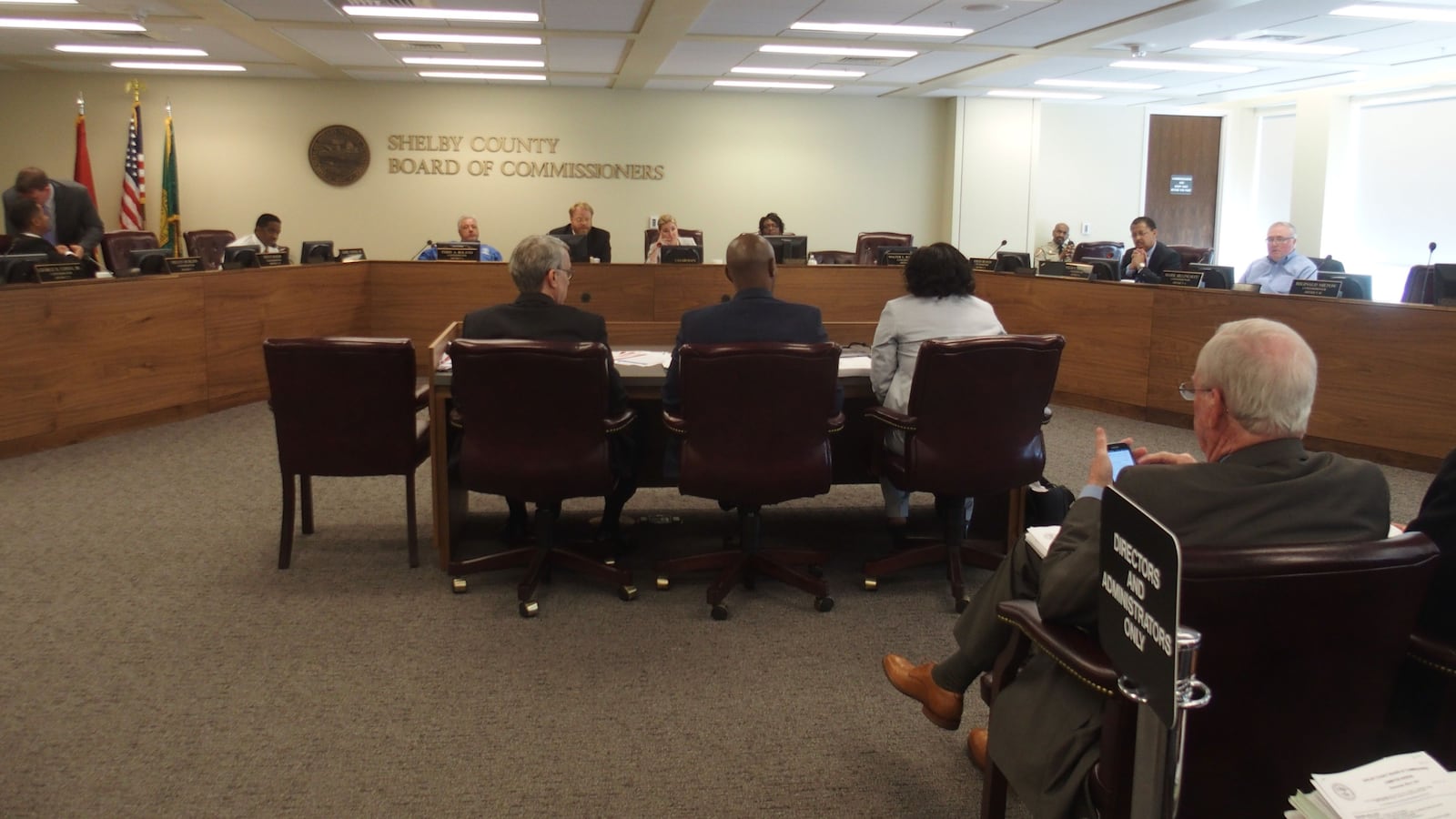State officials have hoisted the financial responsibility for educating Tennessee’s children on the backs of local districts, say Shelby County School leaders who are seeking more local funding to bridge the gap.
“If you want to get off the hot seat, you should go to the state and tell them to give us our due amount,” Board of Education member Chris Caldwell told the Shelby County Commission Wednesday during a presentation in Memphis.
Administrators for Tennessee’s largest public school system asked commissioners for $15 million on top of the $301 million that the commission already is obligated to allocate to the district next school year. The request comes two weeks after district’s board approved a $974 million budget for the 2015-16 school year that includes $125 million in cuts because of a drop in student enrollment, a mushrooming pension obligation and a decrease in local and state sales tax revenue.
Local officials estimate that the district would receive an additional $100 million if the state fully funded Shelby County Schools through Tennessee’s Basic Education Program (BEP), the formula through which state education dollars are generated and distributed to Tennessee schools.
However, commissioners expressed reluctance to enable a flawed funding system.
“What incentive does the state have to fully fund the BEP if we keep picking up their slack?” asked Commissioner David Reaves. “We need to create a climate where there’s a burning need [for the state to fulfill its obligation].”
Seven school systems in southeast Tennessee, including Hamilton County Schools in Chattanooga, sued the state in March over funding, arguing that the state has breached its constitutional duty to provide “a system of free public education” for Tennessee’s children. Among other things, the suit contends that the state underestimates the cost of teacher salaries by more than $500 million statewide.
Shelby County Schools, along with districts in Nashville and Knoxville, are considering filing lawsuits as well, while the state has asked the court to dismiss the existing suit.
Meanwhile, Gov. Bill Haslam met earlier this year with the superintendents of Tennessee’s four largest districts and committed to work with them to address the issue. Following his proposed budget, the legislature last month approved a $170 million boost in K-12 spending, mostly for teacher pay raises, but district leaders say state education funding remains woefully inadequate.
The $15 million increase requested of the commission would represent a 1 percent hike in local funding for Shelby County Schools.
School administrators told commissioners that they are not alone. District leaders in Knoxville, Chattanooga and Nashville have asked their local funding bodies for more money as well, with Chattanooga’s Hamilton County seeking the biggest hike of 10 percent.
The Shelby County Commission spent almost a third of its total revenue and 60 percent of its collected property tax revenue — about $381 million — on education this fiscal year, which ends June 30. Another 12 percent went toward capital debt accrued through new school construction in the suburbs during the 1990s.
This school year, the commission has provided the district with $2,800 per student, up 30 percent from 2005. About a quarter of the district’s funding comes from the county.
District leaders complained that, in addition to underfunding Shelby County Schools, the state is siphoning off money from the local district by allowing the state’s Achievement School District (ASD) to take control of numerous Memphis schools as part of the state’s school turnaround plan. District administrators estimate that the ASD’s intervention will result in a loss of $18 million next year to Shelby County Schools.
“The state ought to quit committing money to the ASD and instead give it to the people who know these families the most,” Caldwell told commissioners.
ASD officials have said the takeovers have been necessary to interject new ideas, energy and even competition into an educational system that had been stagnant for too long. They have praised Shelby County’s own school turnaround initiative through its Innovation Zone.

In a detailed presentation, Superintendent Dorsey Hopson said the district is being prudent with its money and is getting results, including increased test scores, especially at schools that previously have been among the state’s worst-performing schools. To maintain that momentum, Hopson said the district needs an infusion of local cash to give bonuses to its most effective teachers; hire more reading coaches, guidance counselors and social workers; and continue college and career preparation programs, among other needs.
The presentation noted that the district also is working to offset a significant loss of federal and philanthropic grant money beginning next school year.
Commissioners complimented the district for boosting academic performance while making substantive budget cuts. They also spoke of the need for a quality education system to counter significant societal challenges.
“You have an unprecedented challenge as a system with crime, poverty and all the other social ills of an urban community,” Commissioner Walter Bailey said.
The full commission is expected to vote on the county’s budget May 20.
Contact Daarel Burnette II at dburnette@chalkbeat.org or (901) 260-3705.
Follow us on Twitter: @Daarel, @chalkbeattn.
Like us on Facebook.
Sign up for our newsletter for regular updates on Tennessee education news.


